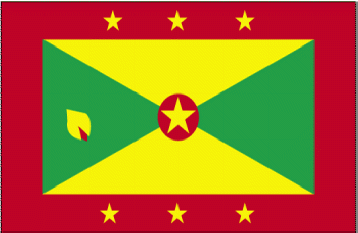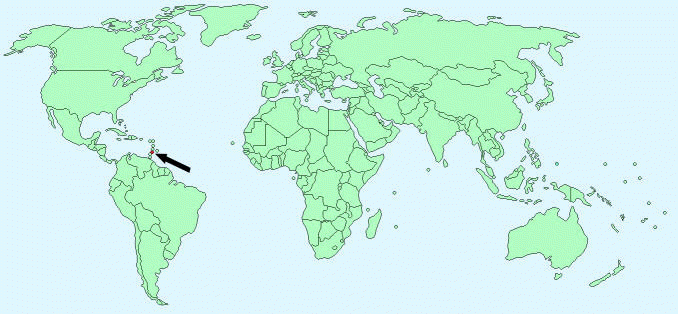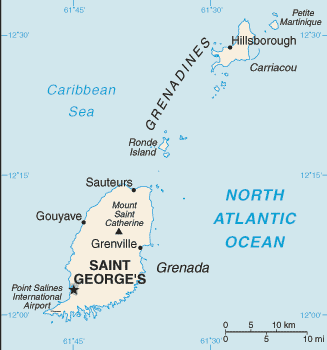Grenada


Continent – North America
Region – Caribbean
Size – 344 km²
Geography – volcanic island with central mountains
Language – English, French Patois
Religion – 53% Roman Catholic, 13.8% Anglican, 33.2% other
Monetary Unit – East Caribbean dollar
Natural Resources – timber, tropical fruit, deepwater harbours
Agriculture – bananas, cocoa, nutmeg, mace, citrus, avocados, root crops, sugarcane, corn, vegetables
Industry – food and beverages, textiles, light assembly operations, tourism, construction

Neighbouring Countries – none – island
Population – 110,152 (2014 estimate)
Population Growth Rate – 0.5%
Average Life Expectancy – 73.8
Capital City – St. George’s (33,734)
Highest Mountain – Mount Saint Catherine (840 m)
Longest River – St John’s river
Climate – Tropical – 19°C to 33°C
Yearly Rainfall – 150 cm (approx) – 380cm (approx) rainy season – June to December
Plant Life – wide variety of forest trees and many types of tropical flowers and shrubs
Animal Life – armadillo, agouti, and monkeys wild goat
Bird Life – hummingbird, egret, dove, and wild pigeon
Harvard Reference for this page:
Heather Y Wheeler. (2015). Grenada. Available: https://www.naturalhistoryonthenet.com/Facts_Figures/Country_Facts/grenada.htm. Last accessed Monday, July 18, 2016
Facts and Figures Pages
